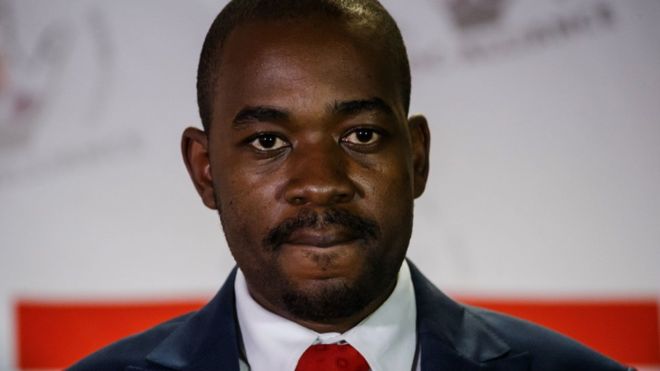Former Citizens Coalition for Change (CCC) leader Nelson Chamisa has expressed his disapproval of the Harare City Commission inquiry, chaired by retired Justice Maphosa Cheda, and established by President Emmerson Mnangagwa. Chamisa labeled the inquiry a distraction from addressing genuine issues affecting local governance.
Chamisa appeared before the commission on Monday following allegations by CCC councillor Blessing Duma, who claimed Chamisa had instructed the city to expedite the regularization of settlements in Harare. In a detailed statement posted on X (formerly Twitter), Chamisa elaborated on his appearance and criticism of the commission’s intentions.
Chamisa’s Statement on the Inquiry
A Controversial Commission Chamisa began by explaining that while he has reservations about the commission’s legitimacy, he appeared out of respect for the legal process. “On Monday, I was requested to testify before (Rtd) Justice Maphosa Cheda at the Harare City Commission inquiry, a forum set up by Mr. Mnangagwa,” Chamisa stated. “I obliged out of courtesy and as an officer of the Court and Justice.”
Nelson Chamisa
Unsubstantiated Allegations At the heart of the inquiry was an accusation that Chamisa had been involved in a “regularization process” within the Harare City Council. He denied having any authority or involvement in local government matters, stating:
“I have no locus to comment on local authority issues. I am neither a councillor, mayor, local government official, nor part of central government. Urban councils operate under the Urban Councils Act, with decisions arising from council committees or full council motions—not from external actors or political parties.”
Questions of Evidence and Credibility
The inquiry presented an audio recording in which a councillor allegedly mentioned Chamisa. Chamisa criticized the method of presenting evidence, calling it “amateurish.” The audio was played from a phone, raising doubts about its authenticity. He said:
“I responded to avoid embarrassing the commission. However, I pointed out that the same courtesy extended to me should also apply to Mr. Mnangagwa, whose name was also mentioned in the audio.”
Chamisa emphasized the principle that allegations require proof. Summoning private individuals based on unverified claims undermines the integrity of justice, he argued.
Chamisa’s Broader Criticism
Condemnation of Home Demolitions Chamisa condemned the ongoing destruction of homes as part of local governance failures. “Using bulldozers to erase lives and livelihoods is criminal, sadistic, and inhumane,” he stated. “This is not justice but evidence of systemic leadership failure and a mockery of human rights.”
A Pattern of Political Diversions Chamisa accused the government of using inquiries to deflect attention from its failures. He referenced the Motlanthe Commission of 2018, which investigated post-election violence, as another instance where he was targeted for matters unrelated to him. “In 2023, the same pattern is repeated, drawing me into issues far beyond my purview,” he remarked.
Calls for Accountability Chamisa argued that corruption and maladministration are the root causes of Zimbabwe’s urban governance crisis. He accused a “small grouping” of weaponizing inquiries to distract from their failures. “Local governance has become a theater of incompetence and impunity. It is time to hold accountable those truly responsible for this decay,” Chamisa asserted.
Governance Crisis and Proposed Solutions
Chamisa described the Harare City Commission inquiry as emblematic of Zimbabwe’s broader governance crisis. He called for genuine accountability to address issues such as corruption, poor administration, and leadership failures at all levels of government. “This governance crisis cannot be resolved by malicious intent or unwarranted targeting of innocent individuals through commissions,” he said.
Chamisa’s appearance before the inquiry has sparked discussions about the role of such commissions and their potential use as tools for political persecution. For Chamisa, the solution lies in tackling systemic issues rather than engaging in what he sees as diversionary tactics.
